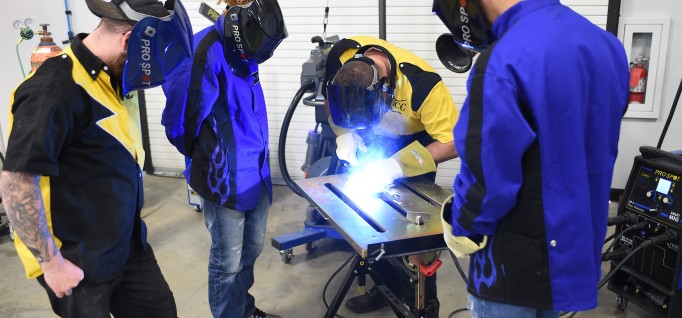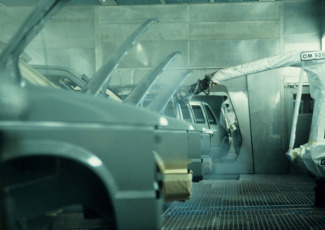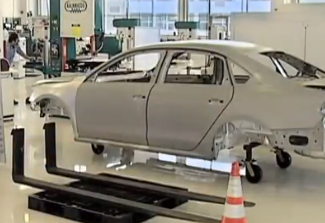Specialized Degree Program Rebuilds Its Offerings With Partnership
By Rebecca L. Weber
April 10, 2015
Fayetteville Technical Community College’s Collision Repair program teams up with Enterprise and prepares students for working on the latest car models.
In North Carolina, an innovative partnership with rental-car company Enterprise provides Fayetteville Technical Community College (FTCC) students with a unique experience: repairing and refinishing late-model cars.
The company rents only the newest cars to its customers, and it’s those year-old cars that come into the I-CAR Collision Repair program.
Repairing cars from the year 2000 is completely different from repairing cars from 2015, says Paul Gage, the program’s director. Today’s fleet is even different from those of five years ago, he says.
Enterprise benefits from having students work on its cars and from being able to hire skilled workers with proven, relevant experience. Successful graduates also earn 13 certificates. The two-year program culminates in an eight-week final exam and costs about $5,500.
“The industry needs these people. The industry needs them to be well trained and to be professional,” says Gage.
Keeping up with the times
FTCC already had a collision repair program that was “very similar to what you see across the country,” according to Gage. Collision repair programs tend to work on older models, meaning that even newly minted graduates may not have had exposure to what they find once they enter the workforce.
Gage used to work at Enterprise, so he already had what he calls a “great relationship” with the company. FTCC approached Enterprise with the idea of building the program and repairing the rental vehicles. The response? “That’s a great idea.” FTCC’s new program hatched in December 2013, and by August 2014, the first session began. In the 20,000-square-foot workshop, the oldest car currently in repair is from 2011.
Gage credits the FTCC leadership team for proactively communicating with the industry about what it takes to ensure that graduates are hired. If a company needs students to spend more time mastering, say, carbon fiber, the curriculum can evolve on the spot.
At the program’s grand opening event, Gage says, 500 executives showed up, including Geico’s vice president, who presented a $100,000 check to contribute. “Everybody in the industry knows they have complete access to me, the facility and the curriculum.”
It’s not all about the cars. Curriculum, soft skills and leadership and mentorship training are also big components of the successful program.
“Team One,” the aptly named inaugural class, began in August 2014, with about 20 new students joining every eight weeks, for a current total of 53 students. The program will continue to enroll 20 new students every other month and will hire faculty as enrollment grows.
The unorthodox schedule was created with veterans — who make up about 60 percent of the program’s enrollees — in mind. “We did not want military veterans to come out of the military and say, ‘I want to do this, but I don’t want to wait 16 weeks,’” Gage says. “It also allows me to keep a constant stream of people going into the industry, and that keeps the industry coming back.”
Get a behind-the-scenes look at the program in this video, created by the North Carolina Business Committee for Education.
Does your college have an innovative partnership with an industry that provides students with access to practical experiences they couldn’t otherwise obtain? Tell us about it in the Comments.







